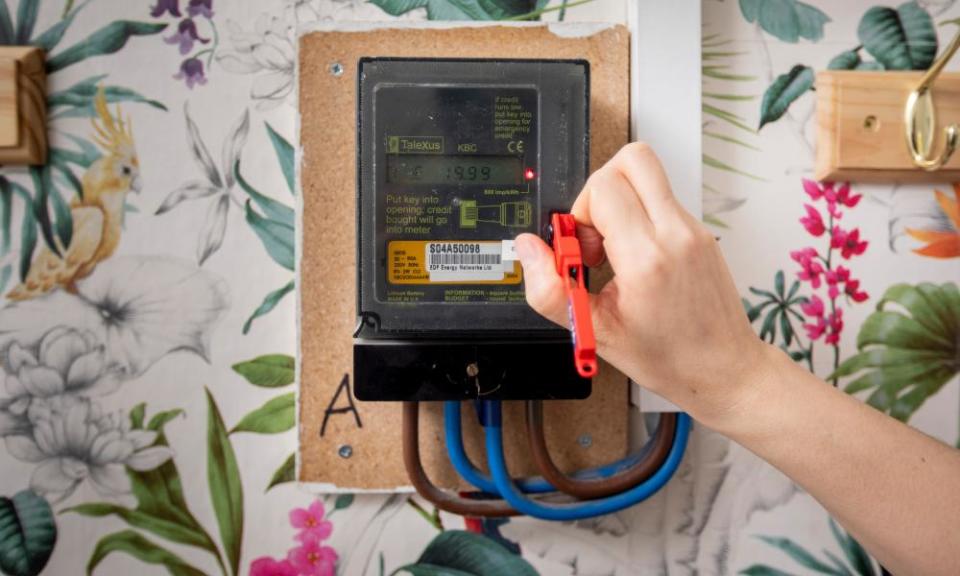British households on prepayment meters risk missing £130m of energy bills support

British households on prepayment meters face missing out on up to £130m of support for their energy bills if they fail to redeem government vouchers before they expire in a month’s time.
Under the energy bills support scheme, which runs until 30 June, all households are entitled to discounts of up to £400 on their bills.
Those on direct debits and smart prepayment meters received the payments automatically, but those on analogue prepay devices were sent vouchers by post or email and have had to take them to a post office or PayPoint vendor in order for the cash to be credited to the meter.
The government said that 83% of those vouchers, worth either £66 or £67, had been claimed. Of the 11.6m vouchers issued by suppliers, with a total value of £780m, only 9.7m – or £650m worth – have been cashed in.
Data showed that, for the sixth month in a row, London had the lowest rate of redemption, with more than 650,000 vouchers still unused at the end of March. About a quarter of vouchers in Scotland and the south-east of England have also yet to be claimed.
Since the scheme’s launch last autumn, data has consistently shown that between a fifth and a quarter of the prepay vouchers have been left unredeemed.
Matthew Cole, head of Fuel Bank Foundation, said it had found that some households had not received vouchers as their details were incorrect or they had moved house, or because they had lost or deleted the voucher.
The consumer champion Martin Lewis and campaign groups had urged the government to investigate the low redemption rates and raise awareness of the scheme.
The government said on Wednesday it had mounted a “final push” to encourage households to claim the support. Amanda Solloway, the minister for energy consumers and affordability, said: “Today we are redoubling our efforts to reach anyone who still hasn’t claimed this help.”
Adverts for the scheme have been posted in bus stops, post offices and job centres, on train station billboards and in newspapers over the last week to raise awareness of the financial aid.
The suppliers who delivered the most vouchers – British Gas owner Centrica, E.On and Ovo – had redemption rates of about 80%.
The voucher marketing push follows a winter in which energy suppliers were banned from forcibly fitting prepayment meters under court warrants, after it emerged that debt agents working for British Gas appeared to have ignored signs of customers vulnerability. Energy regulator Ofgem has since set out a code of conduct for suppliers to force-fit the meters, but has yet to lift the ban.
The prepay scheme is part of a wider drive to help Britons with their energy bills following Russia’s invasion of Ukraine, which pushed up wholesale gas prices and fed through to domestic bills.
Last week Ofgem said its price cap on annual gas and electricity bills for direct debit customers would fall to £2,074 from July, but the average household will still pay nearly double the rate for their energy than before costs started to soar.
All households were entitled to £400 of support, costing the government £11.5bn. That support will not be replicated this winter, meaning consumers will feel little relief despite the easing prices.

 Yahoo Finance
Yahoo Finance 